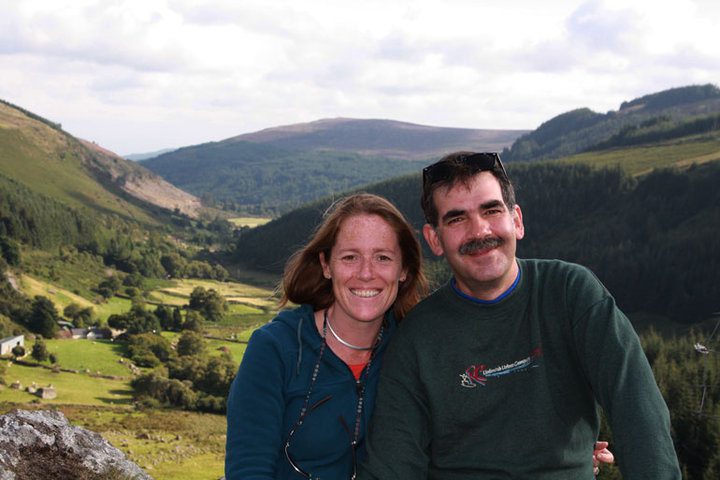One of the GJP’s original Superforecasters, Brett Specter describes his entry into forecasting as a “happy coincidence,” but his sustained success is no accident. With decades of experience living across Europe, a passion for US politics, and a career defined by entrepreneurial ventures and civic involvement, he approaches forecasting with “competitive curiosity” and a disciplined mind. Here, Brett shares why accuracy matters more than eloquence, how to evaluate one’s sources of information, and what he’s learned from collaborating with some of the sharpest minds in the forecasting world.
GJ: To begin, could you tell us a little about yourself?
My European friends might describe me as “still American,” while my American friends would say that I’m more European. I think it’s fair to say that my outlook is influenced by both sides of the Atlantic. My family and some of my oldest friends reside in the US while I’ve spent most of my life living in European countries.
My first move to Europe came in the early 70s when my father took a five-year position with the IAEA in Vienna. That is where I attended 8-12th grades. The year before I moved to Vienna, my science class in the US took a field trip to a rock quarry. My first year in Vienna, our history class, studying the Soviet Union, took a field trip, in the middle of the winter, to Moscow and (then) Leningrad. Safe to say, my worldview was quite different after that experience!
I returned to the US for college, majoring in Politics at NYU, and would later spend a year in Seattle. That ended up being the full extent of my time as an adult in the US. Since my college years, I lived for 12 years in Amsterdam, a similar amount of time in the UK, and since 2011, in Spain.
GJ: Could you describe your journey to becoming a GJ Superforecaster?
The best description would be “a happy coincidence.” I’ve always been interested in political, economic, and market outcomes. A friend who had seen a recruitment ad from either the GJP or UPenn emailed saying, “You’re always making predictions. You should try this.” So, I did. The first year of the tournament I came out on top of the group I was placed in. The second year I was added to a “Supers team.” That forecasts were scored appealed to me, and getting to work and interact with other forecasters was and remains one of my favorite aspects about Good Judgment. It was like finding the lost tribe of Cassandra.
GJ: When Good Judgment Inc was launched in 2015 as a commercial successor to the Good Judgment Project, you were invited to become one of our first professional Superforecasters, and have been one of our leading “Supers” ever since. How is it different now from the GJP days? What’s the most rewarding part for you as GJ Superforecaster?

In the GJP days, the competition between Super teams and especially against outside experts was a driving force. Knowing that our forecasts were routinely outperforming groups that had access to restricted or classified information was both exciting and satisfying.
The most rewarding part of being part of GJ remains the contact and exchanges with other Superforecasters. There is rarely a week that goes by that I don’t pick up something new or explore an idea that I hadn’t fully thought through before. One ongoing discussion throughout the GJ years which particularly interests me is whether our skills can be applied to investing. That discussion continues, and it was directly responsible for encouraging me to learn a lot more about options trading and how markets work generally.
GJ: When we approach clients, we always explain that Superforecasting is a process. What are some of the key ingredients in your approach to forecasting?
For a forecaster, “winning” equals accuracy. Your track record will speak for itself. That is not necessarily the same as having the most convincing argument or the most comprehensive insight into a particular topic. Understanding and rating information sources is key too. How motivated to be accurate are the sources that you access? Whether one likes or dislikes the source of information should come a distant second to their historical “score.”
GJ: When you’re not busy forecasting, what do you do in your spare time?
Travel to new places, and fortunately, with a wife who enjoys that too! Apart from the pandemic era, each year a new country or two gets explored. Last year, it was Latvia and Lithuania for the first time, the year before, Montenegro and Georgia, and next year we’re hoping to visit Taiwan.
Despite not living in the US for many years, I remained hooked on its politics. I’m a long-time member of Democrats Abroad (DA), a global organization whose main purpose is to help Americans who live abroad get registered to vote. I was a founding member of the Alicante, Spain chapter of DA, and recently served for two years as its Chapter Chair.
GJ: What advice do you have for people who want to improve their forecasting skills or, more broadly, their decision-making skills?
Perfecting any skill or craft requires time and practice. Forecasting is no different. When you get a forecast wrong, and we all do, try to pinpoint how you could have thought about it differently and learn from the experience.
There’s also an advantage in being competitively curious. You’ll likely need multiple sources of information to get the most accurate sense of any complicated issue. Be aware of what helps to create a clearer picture of the topic you’re focusing on. If improving your forecasting skills is important enough to spend your time on, then you’re already on the right track to improving those skills.
Schedule a consultation to learn how our FutureFirst monitoring tool, custom Superforecasts, and training services can help your organization make better decisions.